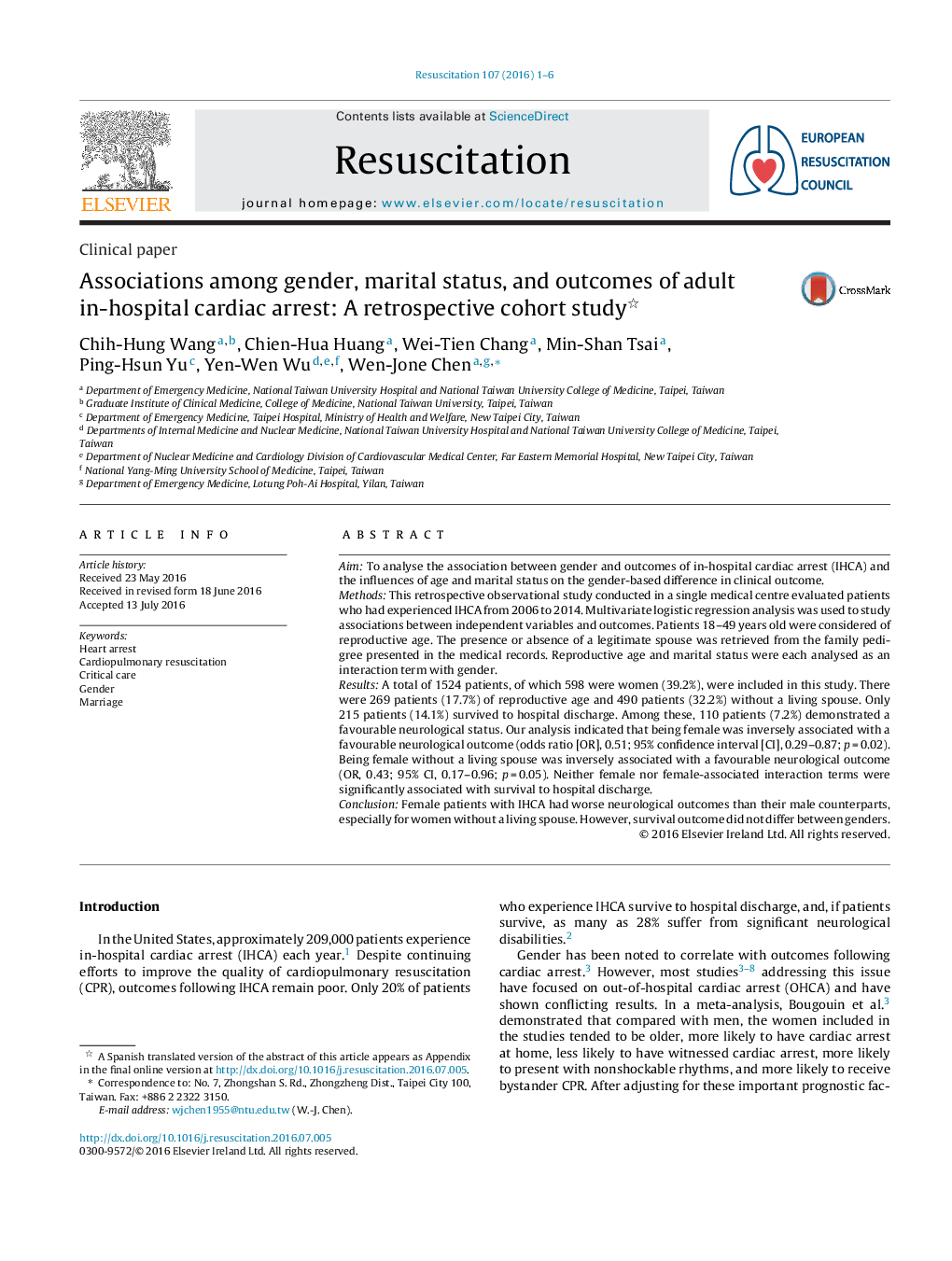| Article ID | Journal | Published Year | Pages | File Type |
|---|---|---|---|---|
| 3007627 | Resuscitation | 2016 | 6 Pages |
AimTo analyse the association between gender and outcomes of in-hospital cardiac arrest (IHCA) and the influences of age and marital status on the gender-based difference in clinical outcome.MethodsThis retrospective observational study conducted in a single medical centre evaluated patients who had experienced IHCA from 2006 to 2014. Multivariate logistic regression analysis was used to study associations between independent variables and outcomes. Patients 18–49 years old were considered of reproductive age. The presence or absence of a legitimate spouse was retrieved from the family pedigree presented in the medical records. Reproductive age and marital status were each analysed as an interaction term with gender.ResultsA total of 1524 patients, of which 598 were women (39.2%), were included in this study. There were 269 patients (17.7%) of reproductive age and 490 patients (32.2%) without a living spouse. Only 215 patients (14.1%) survived to hospital discharge. Among these, 110 patients (7.2%) demonstrated a favourable neurological status. Our analysis indicated that being female was inversely associated with a favourable neurological outcome (odds ratio [OR], 0.51; 95% confidence interval [CI], 0.29–0.87; p = 0.02). Being female without a living spouse was inversely associated with a favourable neurological outcome (OR, 0.43; 95% CI, 0.17–0.96; p = 0.05). Neither female nor female-associated interaction terms were significantly associated with survival to hospital discharge.ConclusionFemale patients with IHCA had worse neurological outcomes than their male counterparts, especially for women without a living spouse. However, survival outcome did not differ between genders.
